June 24, 2014 •
NY Establishes Ethics Tip Line
The Joint Commission on Public Ethics has created a tip line and website allowing the public to report alleged ethical violations by state officials and lobbyists, including improper gifts, conflicts of interest, nepotism, abuse of power, and sexual harassment. To […]
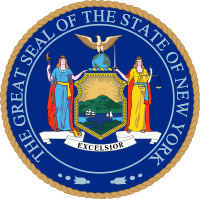 The Joint Commission on Public Ethics has created a tip line and website allowing the public to report alleged ethical violations by state officials and lobbyists, including improper gifts, conflicts of interest, nepotism, abuse of power, and sexual harassment.
The Joint Commission on Public Ethics has created a tip line and website allowing the public to report alleged ethical violations by state officials and lobbyists, including improper gifts, conflicts of interest, nepotism, abuse of power, and sexual harassment.
To report violations, call 1-800-87-ETHICS or visit http://reportmisconduct.ny.gov.
June 19, 2014 •
Ohio JLEC Issues Opinion on Tickets to Charitable Fundraisers
The Ohio Joint Legislative Ethics Committee recently issued an advisory opinion clarifying certain gift reporting requirements for members, candidates, and employees of the General Assembly. The opinion also applies to reports filed by any legislative agent providing a gift to […]
 The Ohio Joint Legislative Ethics Committee recently issued an advisory opinion clarifying certain gift reporting requirements for members, candidates, and employees of the General Assembly. The opinion also applies to reports filed by any legislative agent providing a gift to a reportable person.
The Ohio Joint Legislative Ethics Committee recently issued an advisory opinion clarifying certain gift reporting requirements for members, candidates, and employees of the General Assembly. The opinion also applies to reports filed by any legislative agent providing a gift to a reportable person.
Advisory Opinion 2014-003 speaks to the value of a complimentary ticket to a charitable fundraiser where the source of the ticket is a third party. When provided by a third party, a complimentary ticket to a non-political fundraiser is a gift, the value of which is the portion of the ticket price that is not tax-deductible.
Furthermore, such portion accrues toward any applicable gift limit. Conversely, a ticket to a charitable fundraiser where the source is the entity holding the event is not considered a gift.
June 17, 2014 •
WA Legislative Ethics Board Considers Infrequent Occasions
Section 42.52.420 of the Revised Code of Washington allows public officials to accept gifts in the form of food and beverage on infrequent occasions. In recent months, “infrequent occasions” has come under scrutiny after a widely-read report showed the state’s […]
 Section 42.52.420 of the Revised Code of Washington allows public officials to accept gifts in the form of food and beverage on infrequent occasions. In recent months, “infrequent occasions” has come under scrutiny after a widely-read report showed the state’s 50 most active lobbyists treated legislators to meals totaling more than $65,000 over a four-month period.
Section 42.52.420 of the Revised Code of Washington allows public officials to accept gifts in the form of food and beverage on infrequent occasions. In recent months, “infrequent occasions” has come under scrutiny after a widely-read report showed the state’s 50 most active lobbyists treated legislators to meals totaling more than $65,000 over a four-month period.
After the Legislature failed to pass any pertinent legislation before its adjournment on March 13, 2014, the Legislative Ethics Board took up the issue. The board held a meeting on June 17, 2014, to review proposals received from the public related to how to define infrequent occasions.
All of the proposals considered by the board would require legislators to file a report upon receiving a free meal. Stricter proposals set the dollar amount threshold for reporting the meal at $5 and the amount of free meals per year at three to five. Others set the threshold at $25 and allow 52 free meals per year. One especially ambitious proposal would require a reduction in a legislator’s per diem allowance for every free meal he or she accepts.
The board will continue to take public comment on the issue and will reconvene on August 19, 2014, to further consider public proposals.
June 10, 2014 •
California Senate Resolutions Strengthen Ethics Laws
The Senate has passed resolutions to tighten ethics laws by creating a new position of ethics ombudsman, installing protections for whistleblowers, and banning the raising of campaign funds during August, the last month of the legislative year. A bill to […]
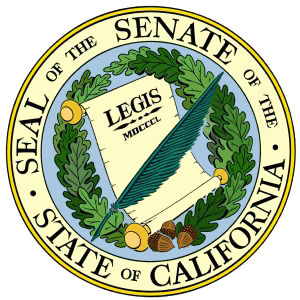 The Senate has passed resolutions to tighten ethics laws by creating a new position of ethics ombudsman, installing protections for whistleblowers, and banning the raising of campaign funds during August, the last month of the legislative year. A bill to extend the fundraising blackout period to the Assembly fell four votes short of the two-thirds needed for approval.
The Senate has passed resolutions to tighten ethics laws by creating a new position of ethics ombudsman, installing protections for whistleblowers, and banning the raising of campaign funds during August, the last month of the legislative year. A bill to extend the fundraising blackout period to the Assembly fell four votes short of the two-thirds needed for approval.
The Senate also approved an amended bill to regulate travel gifts and the use of campaign funds. Senate Bill 831 initially would have barred acceptance of gifts of travel worth more than $8,000, but was amended to only require nonprofit groups paying for legislators’ travel to disclose donor information.
Gov. Terry McAuliffe has vetoed two bills unanimously passed by the legislature designed to restrict his ability to solicit gifts and campaign contributions. The identical bills would have prevented the governor, his campaign committee, and any PAC established on his […]
 Gov. Terry McAuliffe has vetoed two bills unanimously passed by the legislature designed to restrict his ability to solicit gifts and campaign contributions. The identical bills would have prevented the governor, his campaign committee, and any PAC established on his behalf from soliciting or accepting gifts or contributions exceeding $50 from any person or entity seeking loans or grants from the Governor’s Development Opportunity Fund.
Gov. Terry McAuliffe has vetoed two bills unanimously passed by the legislature designed to restrict his ability to solicit gifts and campaign contributions. The identical bills would have prevented the governor, his campaign committee, and any PAC established on his behalf from soliciting or accepting gifts or contributions exceeding $50 from any person or entity seeking loans or grants from the Governor’s Development Opportunity Fund.
The governor sent the bills back with amendments extending the rules to members of the General Assembly, but both houses rejected the amendments to their bills.
The governor argued the restrictions should extend to the General Assembly because, although he awards loans and grants from the fund, the money is appropriated by the General Assembly. Legislators responded it would be impractical to include them in the bills, because they are not privy to such high-level economic development talks or information about the parties involved.
Photo of Gov. Terry McAuliffe courtesy of Kate Wellington on Wikimedia Commons.
May 20, 2014 •
California Gift Restriction Bill Passes Senate
The Assembly is now considering a bill passed by the Senate to further restrict gifts to lawmakers. Senate Bill 1443 prohibits all gifts from lobbyists and reduces the value of gifts state officials can receive from a non-lobbyist source to […]
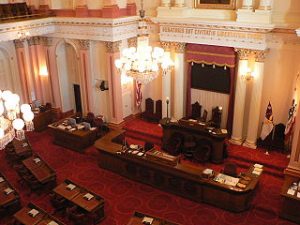 The Assembly is now considering a bill passed by the Senate to further restrict gifts to lawmakers. Senate Bill 1443 prohibits all gifts from lobbyists and reduces the value of gifts state officials can receive from a non-lobbyist source to $200 per calendar year. Currently, lobbyists may provide gifts of $10 per calendar month and officials can receive $440 from a non-lobbyist source per calendar year.
The Assembly is now considering a bill passed by the Senate to further restrict gifts to lawmakers. Senate Bill 1443 prohibits all gifts from lobbyists and reduces the value of gifts state officials can receive from a non-lobbyist source to $200 per calendar year. Currently, lobbyists may provide gifts of $10 per calendar month and officials can receive $440 from a non-lobbyist source per calendar year.
The bill also prohibits most recreational tickets to concerts, professional sporting events, and amusement parks.
Photo of the California Senate chamber by David Monniaux on Wikimedia Commons.
April 24, 2014 •
Broward County Commissioners Seek Changes in Ethics Law
County commissioners are pushing for a rewrite of the county ethics code only four years after the strict code was adopted. Commissioners complain Broward’s ethics code is too strict, setting up officials for violations and penalties for something as small […]
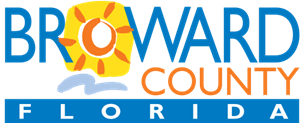
County commissioners are pushing for a rewrite of the county ethics code only four years after the strict code was adopted. Commissioners complain Broward’s ethics code is too strict, setting up officials for violations and penalties for something as small as accepting a bottle of water at an event. Commissioners discussed limiting gifts to $10 and excluding nonalcoholic beverages from the ban.
The April 22 meeting was the first step towards rewriting the code, and potential changes could be enacted by the County Commission later this year, though some changes may require voter approval.
April 23, 2014 •
Ohio Lawmakers to Introduce Ethics Reform Legislation
Ohio lawmakers plan to introduce legislation next month making significant changes to state ethics rules for the first time in decades. The bill would double the amount lobbyists can spend on gifts to lawmakers but require lobbyists and public officials […]
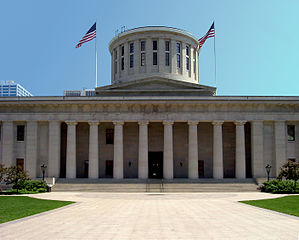
Ohio lawmakers plan to introduce legislation next month making significant changes to state ethics rules for the first time in decades. The bill would double the amount lobbyists can spend on gifts to lawmakers but require lobbyists and public officials to report when a lobbyist spends more than $100 per year on an official for meals, entertainment, transportation, or other gifts.
State Sen. Larry Obhof, a Republican co-sponsor of the bill, maintains a higher reporting threshold is necessary to keep lobbyists honest, as many lobbyists seek to find ways to avoid the lower threshold.
Other notable legislative provisions raise the lobbyist registration fee from $25 to $35, strengthen whistle-blower protection guidelines, allow lawmakers to remedy reporting errors, require random audits of financial disclosure statements, and make changes to procedures for ethics investigations. Bill sponsors argue the bill is intended to increase transparency and accountability.
Photo of the Ohio State Capitol courtesy of Alexander Smith on Wikimedia Commons.
Today the Phoenix, Arizona City Council is expected to vote on whether to create a city ethics commission and whether to add a gift policy to its ethics policies. According to the council’s agenda for the meeting, the proposed gift […]

Today the Phoenix, Arizona City Council is expected to vote on whether to create a city ethics commission and whether to add a gift policy to its ethics policies.
According to the council’s agenda for the meeting, the proposed gift policy identifies permissible and prohibited gifts for elected officials, employees, board members, and volunteers.
It also identifies permissible gifts to elected officials required to be disclosed on a form submitted to and posted by the city clerk.
According to AZCentral.com, the proposed ordinance would allow officials to avoid disclosing event tickets, food, drinks, transportation, or lodging they received as long as such gifts were related to economic development, tourism promotion, or a sister-cities program.
If passed, the ordinance would also create an ethics commission authorized to receive allegations of ethical violations, investigate, take testimony, and engage in any other activity in order to oversee the investigation and enforcement of the gift policy and other conflicts of interest.
The meeting is scheduled to start at 3:00 p.m.
Virginia Gov. Terry McAuliffe has submitted technical changes to the General Assembly on the major ethics legislation passed this session, including a change to the effective date of the legislation. The legislation enacts a limit on gifts from lobbyists and […]

Virginia Gov. Terry McAuliffe has submitted technical changes to the General Assembly on the major ethics legislation passed this session, including a change to the effective date of the legislation.
The legislation enacts a limit on gifts from lobbyists and principals and increases the frequency for lobbyist filings.
The changes must be approved by the House and Senate before the legislation takes effect.
Photo of Gov. Terry McAuliffe courtesy of Kate Wellington in Wikimedia Commons.
April 3, 2014 •
Kentucky Passes Ethics Legislation
Nearing the end of its 2014 session, the Kentucky General Assembly passed significant ethics legislation containing recommendations the Legislative Ethics Commission has requested for years. House Bill 28 prohibits employers of legislative lobbyists and permanent committees from making campaign contributions […]
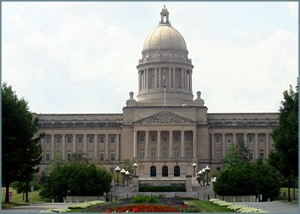
Nearing the end of its 2014 session, the Kentucky General Assembly passed significant ethics legislation containing recommendations the Legislative Ethics Commission has requested for years. House Bill 28 prohibits employers of legislative lobbyists and permanent committees from making campaign contributions to legislators and candidates for the General Assembly during a regular legislative session. Employers of legislative lobbyists must disclose on their expenditure reports the cost of advertising supporting or opposing legislation during a session of the General Assembly.
The bill also includes the “no cup of coffee rule,” eliminating the exception previously allowing legislative lobbyists to spend up to $100 on food and beverage for a legislator, extends the gift prohibition to legislative candidates, and prohibits legislative lobbyists and their employers from providing out-of-state transportation or lodging for legislators.
The bill awaits signature by Gov. Beshear.
April 2, 2014 •
Pennsylvania House Committee Bans Cash Gifts
The Pennsylvania House Bipartisan Management Committee has adopted an ethics rule banning cash gifts. The rule was imposed in response to the highly publicized sting operation involving four House members who allegedly took cash from a lobbyist. The rule permits […]

The Pennsylvania House Bipartisan Management Committee has adopted an ethics rule banning cash gifts.
The rule was imposed in response to the highly publicized sting operation involving four House members who allegedly took cash from a lobbyist.
The rule permits house members to receive cash from family members and non-lobbyist friends.
Photo of the Pennsylvania State Capitol courtesy of Michael180 on Wikimedia Commons.
March 21, 2014 •
Philadelphia Adopts Dollar Limit on Gifts
Philadelphia passed ethics legislation providing a dollar limit on gifts during its March 20 meeting. The legislation prohibits all city officers and employees from receiving gifts worth more than $99 in a calendar year from any donor, and bans all […]
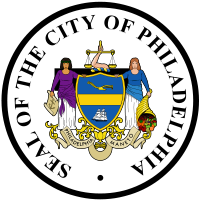
Philadelphia passed ethics legislation providing a dollar limit on gifts during its March 20 meeting. The legislation prohibits all city officers and employees from receiving gifts worth more than $99 in a calendar year from any donor, and bans all cash gifts.
A number of exceptions are provided, including food and beverage at meetings and non-ticketed receptions.
The bill is expected to be signed by Mayor Nutter. Board of Ethics Executive Director Shane Creamer said the Board will begin working on new gift regulations once the bill is signed.
March 12, 2014 •
Georgia Lawmakers and Lobbyists Work with New Ethics Law
Georgia lawmakers and lobbyists are adapting new gift limits to old reporting methods while the ethics commission attempts to draft rules. House Bill 142 established the first-ever limit on lobbyist spending by capping the value of a gift a lobbyist […]
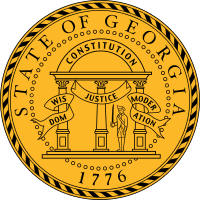
Georgia lawmakers and lobbyists are adapting new gift limits to old reporting methods while the ethics commission attempts to draft rules. House Bill 142 established the first-ever limit on lobbyist spending by capping the value of a gift a lobbyist could give a lawmaker at $75.
The bill, effective January 1, 2014, has several exceptions including one to remove the $75 cap for any caucus approved by the House or Senate ethics committees.
Once approved as a caucus, the members can accept a gift greater than $75 without everyone in a caucus attending a dinner, so long as the entire group is invited. Even before committee approval, delegations and more traditional caucuses began accepting expensive meals from lobbyists, leaving lobbyists to figure out how to disclose the spending.
The Georgia Government Transparency and Campaign Finance Commission is still months away from unveiling rules governing the new ethics law.
State and Federal Communications, Inc. provides research and consulting services for government relations professionals on lobbying laws, procurement lobbying laws, political contribution laws in the United States and Canada. Learn more by visiting stateandfed.com.


